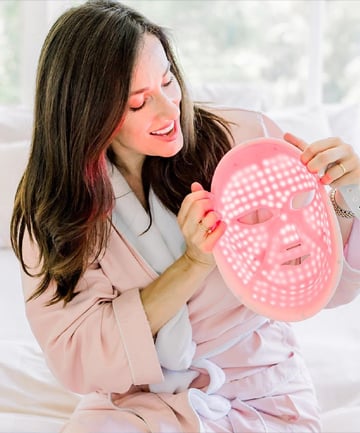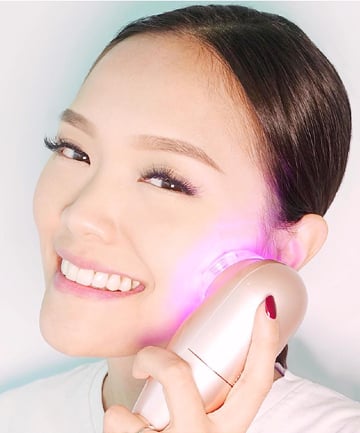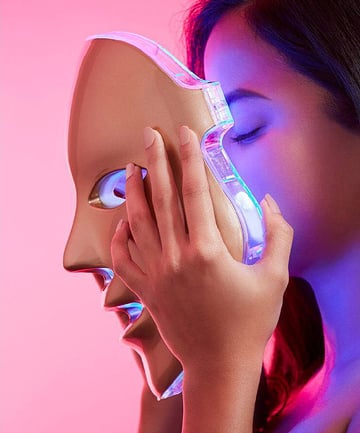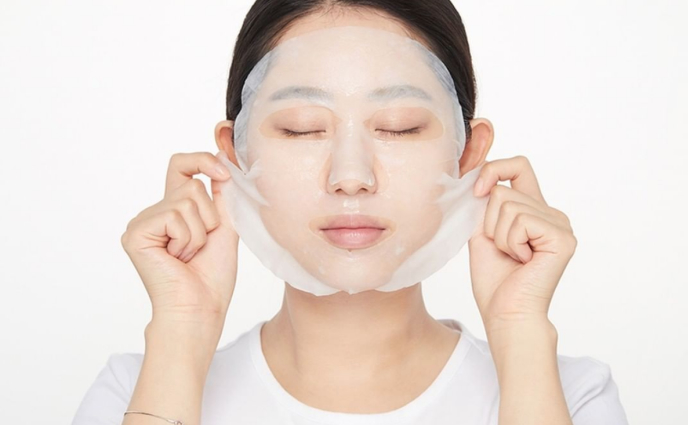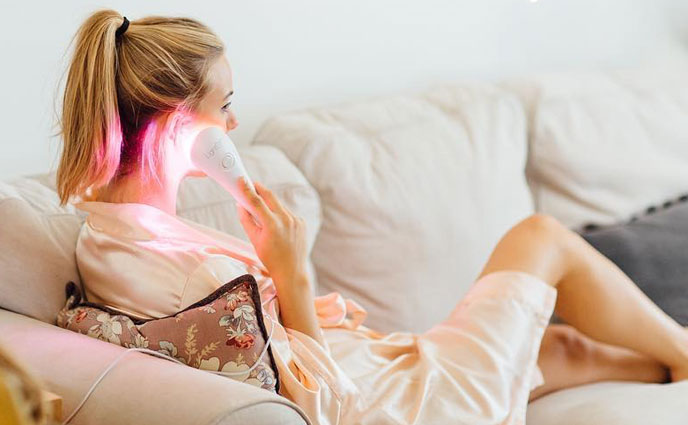Concerned about getting sun damage while using an at-home LED mask? This is one area users don't have to stress about. Rabach says that LED does not contain UV light. Licensed Esthetician and Founder of StackedSkincare Kerry Benjamin says that she has encountered a few studies that suggest LED treatments produce a very small amount of UV radiation, but none have shown that there's enough UV light to cause the typical problems associated with UV damage (sunburns, skin cancer, vision problems). Therefore, using sunscreen during treatment is not necessary. Similarly, Shamban says that photoallergy and phototoxicity generally result from UV exposure, not LED.
Image via @angelicacagliaskincare
There are LED masks that slip over the entire face then there are smaller handheld wands that target specific areas. Rabach says that at-home wands are less effective than masks because the placement of the mask ensures that every part of skin treated has the same level of light. With wands, it is more difficult to apply the light evenly. Furthermore, masks are hands-free and wands obviously aren't. On the flip side, Benjamin says that wands are likely safer for vision because they're moving around the face.
Image via @iloveskininc
Firstly, when purchasing an at-home LED mask check the label to see that it is FDA-cleared, says Rabach. Next, wear blackout or opaque goggles at all times when using it. And follow all the instructions from skin prep, to usage to duration. Read the instructions fully before beginning so you know the full deal, then read them throughout the procedure. And consult the fine print. Benjamin suggests speaking with a professional to figure out the best length and frequency of treatment for your skin.
It's also important to temper expectations. Shamban highly recommends LED as a treatment, but says the only "Insta-result" will be the lit photo for Instagram. No device will have the power of an in-office treatment. And even professional treatments require multiple sessions and consistency for results. At-home devices are a lot less powerful. Rabach adds there is no scientific data supporting that at-home LED treatments are effective for improving skin over time.
Furthermore, Shamban always recommends people check with a board certified dermatologist before starting anything new including products, tools and technologies. After all, they're professionals for a reason.
Image via @mzskinofficial


